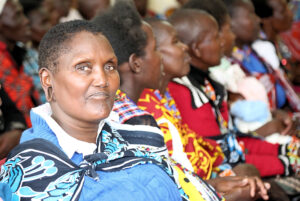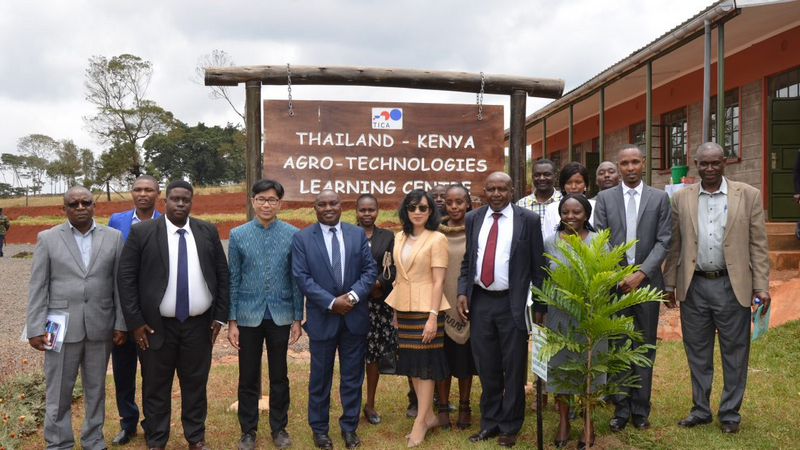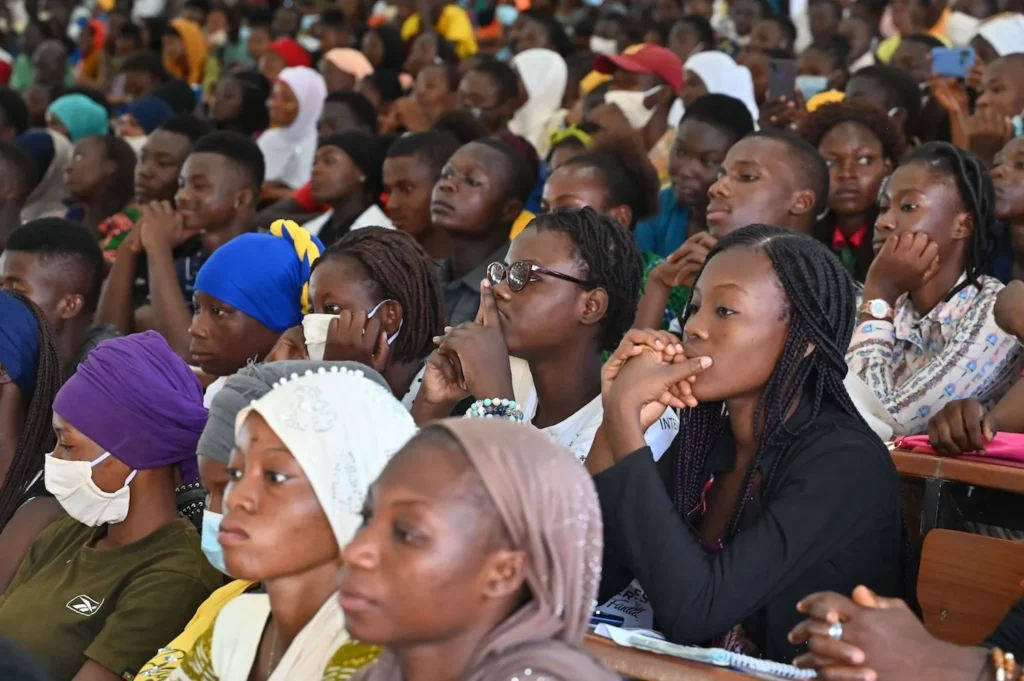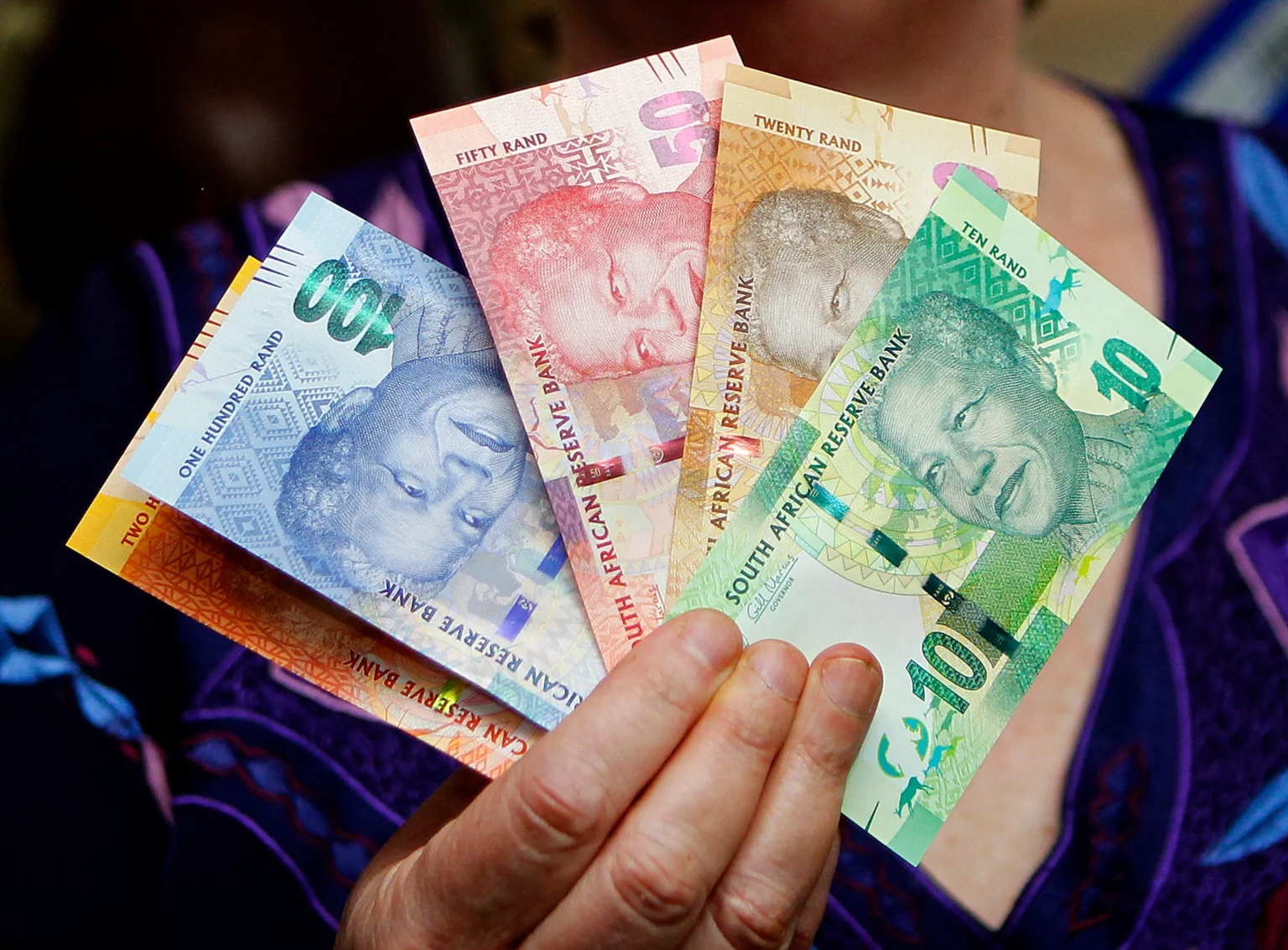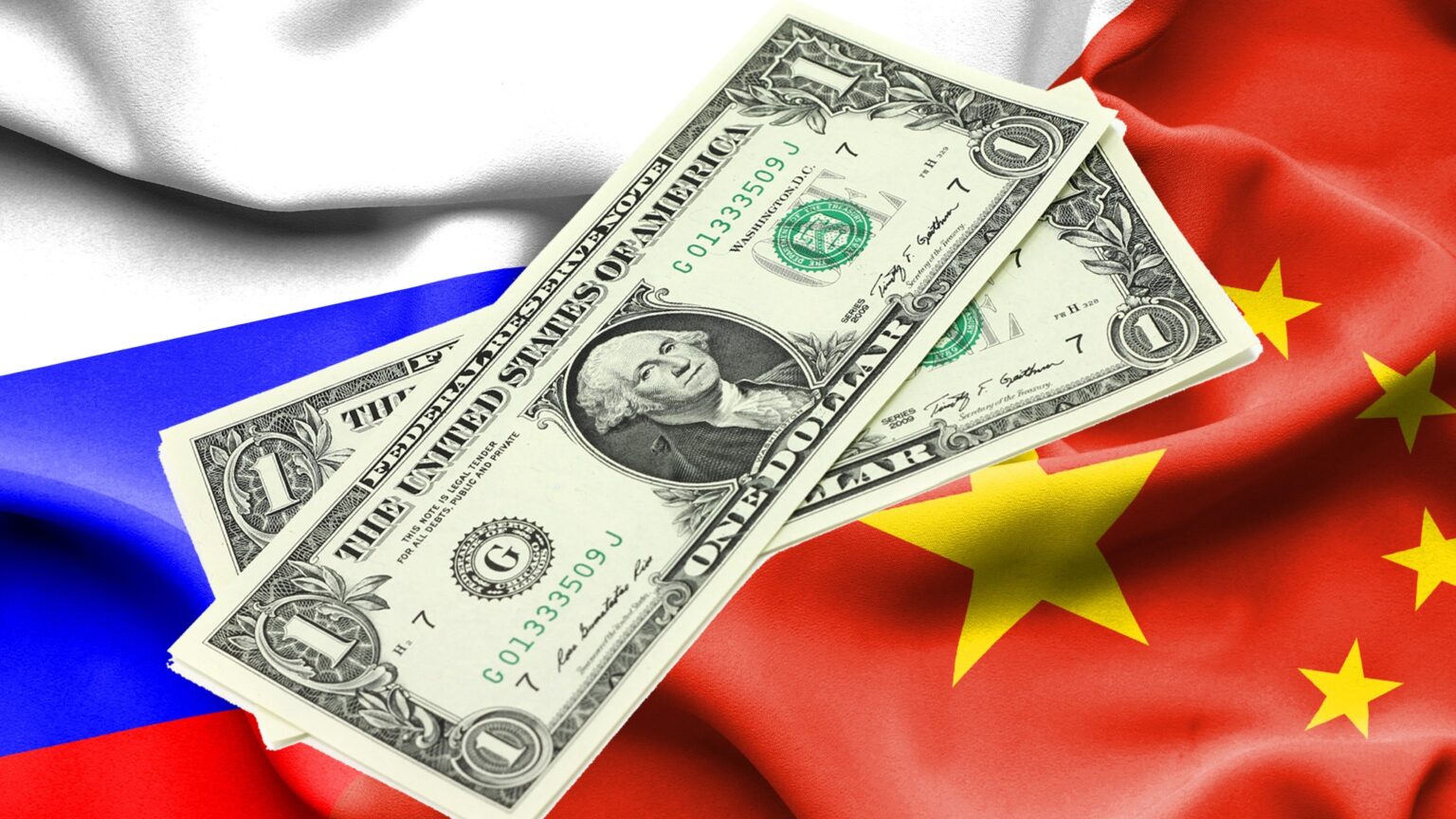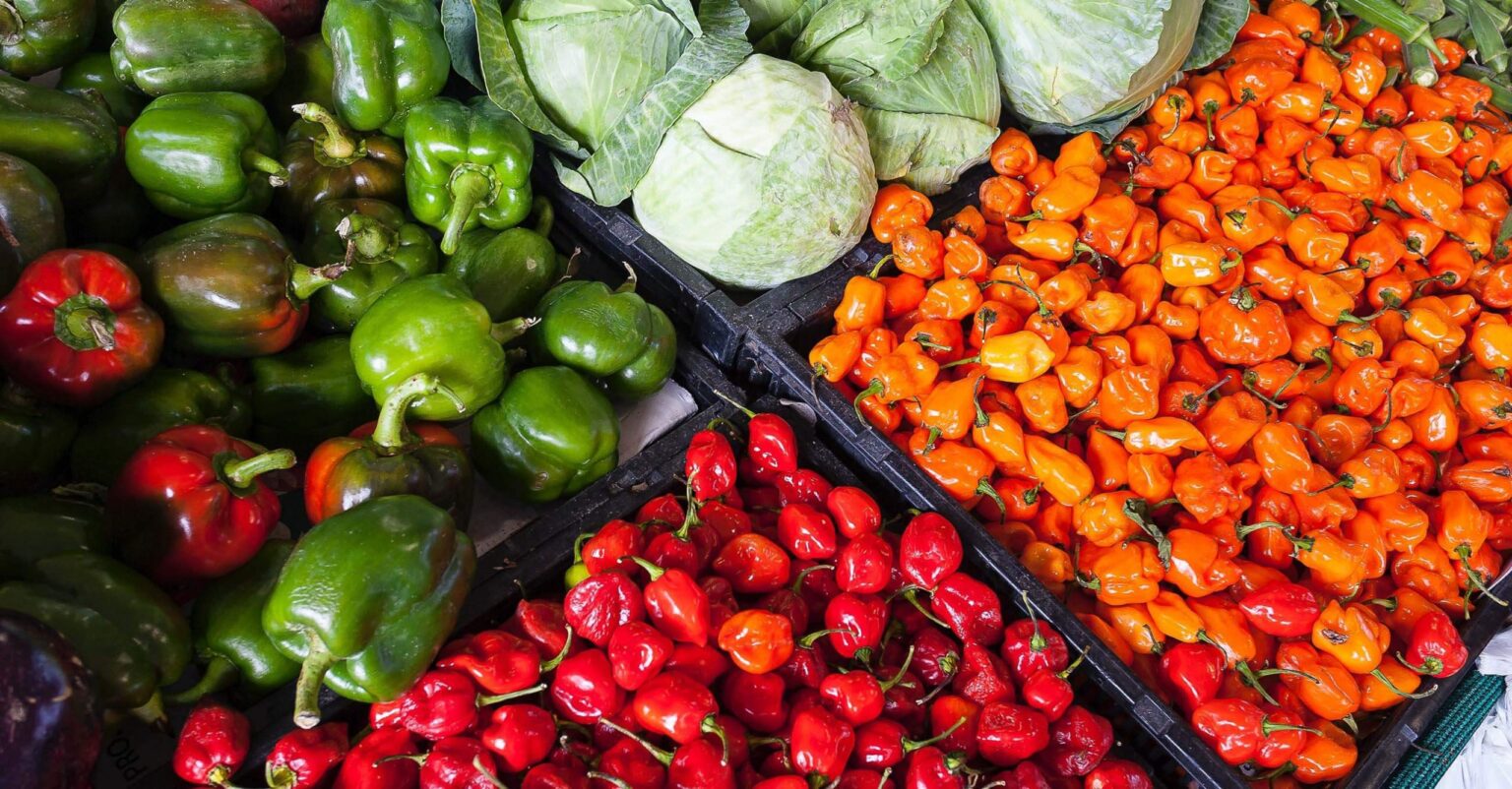- AfDB commits $2 billion to revolutionise clean cooking in Africa, save forests
- The harsh realities of family laws for African women revealed
- Kenyan home buyers shift preferences, seek affordable housing despite market downturn
- How startup Yeeo is shaping the future of business contacts with eco-friendly innovation
- Stakeholders in Nairobi seek to unlock Kenya’s green jobs potential
- Alarming surge in online child exploitation sweeps Africa
- Beijing tightens China-Africa grip as trade rivals US, Russia seek bigger slice
- Exploring the Forex CFD Trading Landscape in Africa in 2024
Author: James Ndwaru
I am a writer based in Kenya with over 10 years of experience in business, economics, technology, law, and environmental studies.
Kenya has recently entered into a promising three-year bilateral agreement with the Royal Government of Thailand to improve crop and animal production practices in the East African nation. The agreement, signed on July 9 last year, outlines a comprehensive collaboration where the Thai government will share its knowledge and expertise in modern and emerging agricultural technologies with Kenyan scientists. The focus is on fostering a knowledge transfer partnership through training programs facilitated by existing state institutions.
Thai Ambassador’s Optimism
Thai Ambassador to Kenya, Ms Sasirit Tangulrat, expressed optimism about the partnership during a recent event at the Nyeri Kenya School of Agriculture. The occasion involved the handing over assorted agricultural equipment and exhibition materials to the center. Ambassador Tangulrat highlighted the urgency of addressing Kenya’s current food crisis, exacerbated by six consecutive seasons of failed rains.
“The Royal Thai Embassy engaged them (Kenya School of Agriculture) to set up this …
Over the past decade, addressing the three pressing needs of the youth—education, engagement, and livelihoods—has become a central tenet of global and continental policy discussions. The United Nations Sustainable Development Goals (SDGs) consider youth as essential partners for achieving inclusive and peaceful societies.
Africans of all ages seem to understand that if the youth are suffering and unable to establish productive livelihoods, it becomes a societal problem. As such, many agree that there is a need for intervention from the government and other stakeholders in addressing the challenge of youth unemployment in Africa.…
The Kwacha is the official currency of Zambia. The country’s foreign exchange rate remained unsettled for a very long time. However, Zambia has made substantial steps in recent years to strengthen its currency through economic measures and foreign support.
Zambia has set an example for other African nations by efficiently controlling its currency. While facing numerous economic issues, such as a drop in copper prices and a large debt, the Kwacha exchange rate has remained reasonably constant.…
Official data has shown that the cost of transacting in international currencies is often 2 or 3 per cent higher than dealing in local alternatives. The higher cost often creates significant international trade obstacles. Ultimately, the progressive decision-making of the Russian government could save Africa from the damaging effects of a strong dollar. Consequently, international trade will become accessible to businesses in Africa. This will boost economic growth in the respective partner countries.…
In recent times, the economic ties between Africa and India have flourished, creating a pathway for mutual growth and collaboration. This article aims to shed light on the evolving economic relations between the two regions while also exploring the vibrant entertainment landscape in India.
Economic Relations Between Africa and India
Over the years, Africa and India have forged strong economic partnerships, fostering trade, investments, and technological exchanges. The economic relations have become multifaceted, covering various sectors such as agriculture, healthcare, technology, and infrastructure development.
Trade Ties
Trade between Africa and India has witnessed significant growth, with both regions benefitting from the exchange of goods and services. India, with its diverse economy, exports pharmaceuticals, machinery, automobiles, and textiles to African countries. In return, Africa contributes with its rich resources, including minerals, oil, and agricultural products.
Investments
Indian companies are increasingly investing in Africa, contributing to infrastructure development and job creation. These …
Ghana finds itself in the classic emerging market trap. This comes from owing too much in someone else’s currency when the global economic tide turns. One ought not to read too much into an emerging economy getting creative with money or to confuse the confiscation of private assets with a more conventional process of fiscal retrenchment that would gain IMF approval. If the plan succeeds, Ghana may have saved itself from an economic meltdown, especially in a period widely considered as economic turmoil, per the World Bank’s analysis of the 2023 economy.…
Over the past decade, African countries have accumulated external debt at a faster pace. The countries have capitalized on abundant, low-cost international credit for fiscal and balance-of-payments funding to help drive development plans.
Africa’s total external debt, accrued by both the private and public sectors, owed to foreign lenders, has surpassed $1 trillion. The related annual debt servicing costs broke through the $100 billion threshold for the first time in 2021.…
There appears to be a consensus that the world is finally turning its back on the US dollar. There are simmering shifts within the global monetary system. The shift becomes ever more apparent, best described as de-dollarisation.
The world is searching for alternatives to the US dollar, finding them more often. Thus, moving away from the dollar can no longer be stopped. For instance, early this year, Indonesia reiterated it would promote local currency settlement (LCS) in cross-border trade and investment to reduce dependence on the US dollar.…
According to the Central Bank of West African States (BCEAO), growth should accelerate in the WAEMU economic region in the medium term. The increased production in the tertiary and secondary sectors remains crucial. These sectors should benefit from controlling the current health crisis in the Union and the continued implementation of the NDPs.
Growth in the Union is expected to drop from 6 per cent in 2021 to 5.9 per cent in 2022 before settling at 7.2 per cent in 2023. The contribution to growth from the tertiary sector should stand at 3.5 per cent in 2023, up by 0.3 points compared to 2022. The contribution of the secondary sector should grow by 0.9 points between the two years to settle at 2.6 per cent in 2023.…
The low adoption of CBDCs in Africa, which would hinder the policy objectives central banks hope to achieve, remains a significant concern for African central banks.
- 90 per cent of central banks were involved in CBDC analysis or projects in 2021. The percentage of central banks undertaking pilot projects reached 26 per cent
- Access to digital cash as an alternative payment mode is a critical factor driving the adoption of CBDCs in Africa.
- Providing access to those without internet or smartphones is a significant challenge for adopting CBDCs in Africa.
What is a CBDC
A central bank digital currency (CBDC) is a digital currency valued in the national unit of account that serves as a central bank liability. Initially, central banks globally were cautious about CBDCs, but their interest has grown recently. According to a recent Bank of International Settlements (BIS) poll, 90 per cent of central banks were involved …

